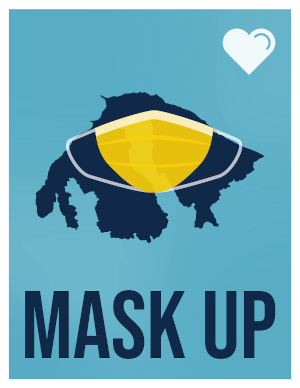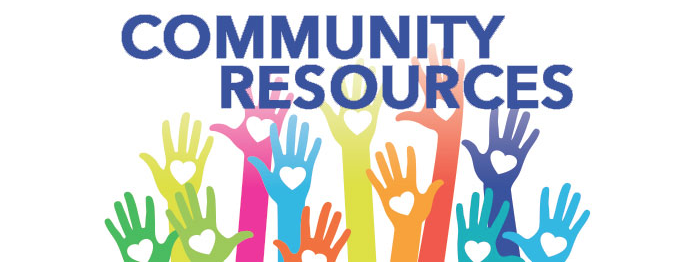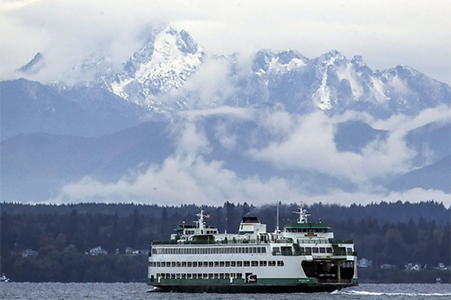Lodging up to 50% capacity authorized, provided adherence to specific safety guidelines
— from Brendan Cowan, Department of Emergency Management —

On Wednesday June 3, San Juan County Health Officer Dr. Frank James signed a new order (June 3rd, Order 2020-7) that modifies the previous limits on transient lodging in San Juan County.
What are the Details?
All transient lodging operators are allowed to operate at 50% capacity, provided they adhere to specific safety guidelines released with the new order. This order applies to all transient overnight lodging in San Juan County, including hotels and motels, camping, moorage, and vacation rentals.
When does this order to into effect?
Immediately.
Why was this new order issued?
Previously, the lifting of the lodging ban was tied to San Juan County’s move to Phase 3. There were numerous concerns about the challenges of lodging operators ramping up without adequate time to train staff, refine safety plans, clean and modify facilities in order to prepare. This order aims to create a limited capacity ramp up period to ensure safe operation.
When will transient accommodations be able to operate at greater than 50% capacity?
Capacity may move to 100% capacity when San Juan County moves to Phase 3.
If we experience increased case volumes or community transmission, will the ban be reinstituted or will the limits be adjusted?
Impacts to the community will be monitored, and if necessary, a reinstitution of the ban on lodging or adjustment of capacity limits will be considered.
Who will be monitoring lodging operators to ensure compliance with the safety and operations guidelines?
San Juan County staff are planning to perform periodic audits of lodging providers to evaluate safety precautions and educate on best practices. To report potential violators of this or any other Health Officer order, please contact 360-370- 7609 or covid-19tipshotline@sanjuanco.com.
Where do I find the Order and the safety guidance?
Order is located online here. Safety guidance is here.
**If you are reading theOrcasonian for free, thank your fellow islanders. If you would like to support theOrcasonian CLICK HERE to set your modestly-priced, voluntary subscription. Otherwise, no worries; we’re happy to share with you.**








just checked the ferry website, still says “essential travel only”. who are we lodging?
Sandy Playa, in this order sections of earlier orders are repealed, specifically 2020-3 Section 3 and 2020-05 Section 2, and then at the end of this order 2020-03 Section 5 is repealed.
Here is that section:
“5. Providers of marine passenger transportation in San Juan County, including but non-limited to Washington State Ferries and commercial providers, shall, maintain prominent posted notice at entrance and exit points on each vessel providing passenger service that travel for purposes other than (1) to conduct or participate in essential activities, (2) for employment in essential business services, or (3) as otherwise provided in Statewide Orders is prohibited and is punishable by law. This notice requirement does not apply to individuals using their own vessels for personal use, although such persons remain subject to Statewide Orders. Additionally, it is requested that all providers subject to this section post the same notice at the place of ticket sales”.
The ferries haven’t really had time to take down their signs, I imagine.
The link above to “specific safety guidelines” leads to an Exhibit A six pages long with dozens of safety requirements. Are these provisions going to be required for the hundreds of individual vacation rentals marketed by Airbnb, VRBO and other online rental sites? And if so, who is going to be responsible to “perform periodic audits” as mentioned above?
Sounds like an impossible task for our small County Health Department, which already has its hands full with Covid-19 testing and contact tracing.
More likely, It’s a recipe for chaos.
“Who will be monitoring lodging operators to ensure compliance with the safety and operations guidelines?”
“San Juan County staff….”
Ha! Ha! Ha! Ha! Ha! Ha! Ha! Ha! Ha!
Oh! Oh! Oh! Ack! Hee! Ha! Ha! Ha! Ha!
The move to open transient rentals was pushed by the Visitors Bureau.
Transient rentals include vacation rentals and the majority of vacation rentals are owned by out of county entities. Some of these entities have multiple vacation rental properties. The majority of full time residents oppose opening too soon. If we have several new Covid cases in the next couple of months the Visitors Bureau and the County Council will have to take responsibility. And there is an election in November.
The Visitors Bureau pushed to have transient rentals open. Transient rentals include vacation rentals and the majority of these rentals have out of county ownership. Some of these ownership entities have multiple rental properties. The majority of full time residents oppose
opening too soon. If we have an outbreak new Covid cases in the next couple of months the County Council and the Visitors Bureau will have to take responsibility. We have an election in November and we will see how voters judge these actions.
Those who are advocating a return to full closure and complaining about all of the off-island-owned vacation rentals, remember all of the LOCAL-OWNED shops and other businesses that rely on tourist dollars during the summer months. Remember all of the county services that rely on tourist tax dollars for much of their funding.
How many of our LOCAL-OWNED shops and businesses are you willing to sacrifice to keep out the tourists?
How many county services that all of us LOCALS depend on are you willing to sacrifice to keep out the tourists?
The bad news in the county’s recent financial update (https://www.sanjuanco.com/CivicAlerts.aspx?aid=916&utm_source=dlvr.it&utm_medium=twitter) is a bellwether that we dare not ignore. The county certainly isn’t ignoring it. That the financial update and this revised order on lodgings came out virtually simultaneously is no coincidence. We’ve flattened the curve. Now we need to stop moving the goalposts before we all go off the cliff. It’s time to reopen, NOW.
The County has chosen to fast-track the opening of visitor accommodations. A look at the Governor’s Covid-19 risk-map, https://www.doh.wa.gov/Emergencies/NovelCoronavirusOutbreak2020COVID19/DataDashboard, is instructive. Where are our visitors coming from? Mostly from those highly impacted urban counties shown on the map. Each visitor is a potential Covid vector. How will 50% vacation-rental occupancy be monitored in guest houses with no owners present? How will it be enforced by a sheriff who has refused to enforce the wearing of face masks? Better to open up only those facilities–hotels, B&Bs, resorts which have staff present. The County’s first job should be to protect its own residents.
Great Point Brian Weise.
50% occupancy means nothing to a private Airbnb. They can continue to operate at 100% capacity seven days a week. Again, many of these lodgings are owned by off island people with no investment in the community.
Our bed-and-breakfasts, our small resorts, our hotels are a community invested business which employ collectively hundreds of people, Not to mention they are frequent donations to our schools and nonprofits.
Does this ruling mean they now can only 50% of their staff?
They can be half as successful wow the Airbnb’s rake it in. When will the county finally addressed this Airbnb issue?
The space between those who only make money here and those who work to live here is immense.
Perhaps, a good place to start with attacking vacation rentals – yes, I believe the term ‘attack’ is well justified – is in that space.
No off island, non staffed rentals, period. Let us not confuse the honestly hurting local business owners with the off island profit mongers.
The former need as much government economic existence as necessary to stay afloat.
Please don’t turn on the ‘safety first,” folks, in them is the future of our community.
Thank you – Joseph Murphy. You make the best point! I wish the county commissioners had given that option some thought.
Something like half the vacation rental properties are owned by off islanders. The idea that we islanders now have to risk our health and even potential death so that these outsiders can reopen their businesses and take 90 percent of the gross income off the islands makes me sick to my stomach.
Greg Oaksen, Brian Wiese and Joseph Murphy make excellent points. If we do any reopening of transient lodgings, it should be focused on the inns, hotels and B&Bs that are intrinsic parts of our community and have made a long-term commitments to its welfare.
MJs mirthfulness is well taken. It’s difficult to believe that grown-ups are making such important decisions for our community.
Michael Riordan –
First you bash the island resorts and inns that stayed open during the lockdown, now you are advocating for them as integral parts of the community that should be protected? Wow.
I agree with the points raised by D’Anna Lewis. As a “femme d’un certain age”, I feel I can ask my age group to justify what seems to me to be extreme selfishness, i,.e., prioritizing the health concerns of seniors over the livelihood concerns of younger generations. Seniors are on guaranteed incomes, they can self-quarantine. The younger generations whose livelihoods are threatened by the one-size-fits-all quarantine, are not so lucky.
I’m not defending the off-island owners of transient rentals, I just think people are hijacking this crisis to push their political agendas.
Looking for data to support the assertions above that the majority of vacation rentals are owned by off-islanders. And are those people who spend time here some of the time?
“50% occupancy means nothing to a private Airbnb. They can continue to operate at 100% capacity seven days a week.” Um, no. They have to limit occupancy to ½ their licensed number.
“Again, many of these lodgings are owned by off island people with no investment in the community.” Let me be a devil’s advocate here and point out that, at the very least, the “off island” people invested in the property, pay the service staff, and pay property taxes and the lodging tax. And many of the “off island” people have invested in the property for retirement.